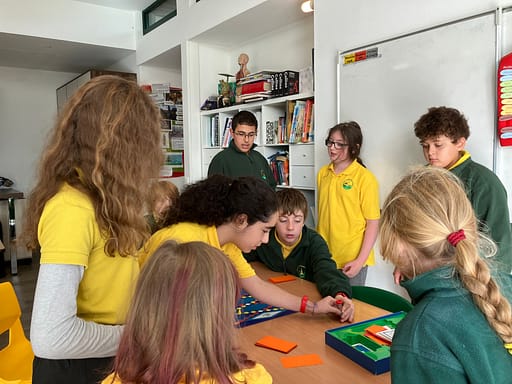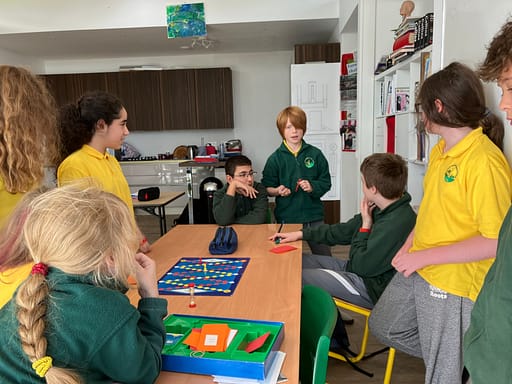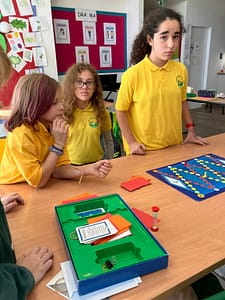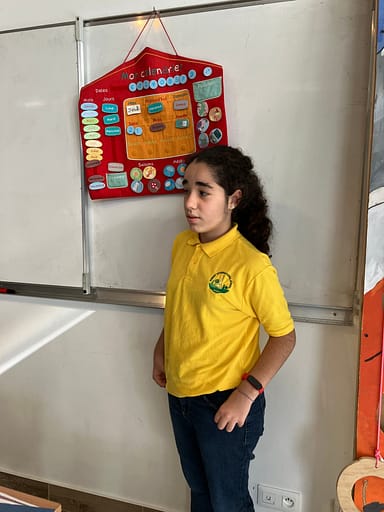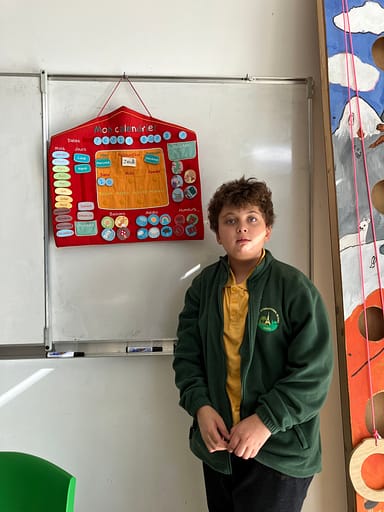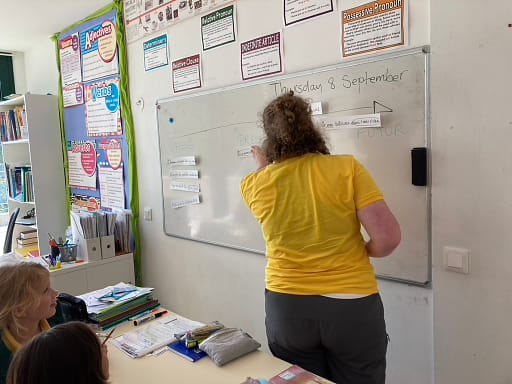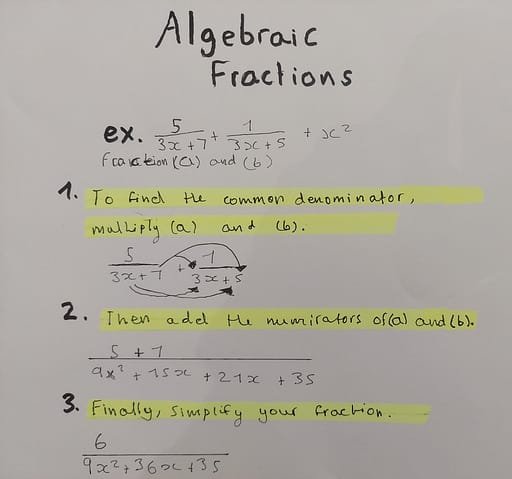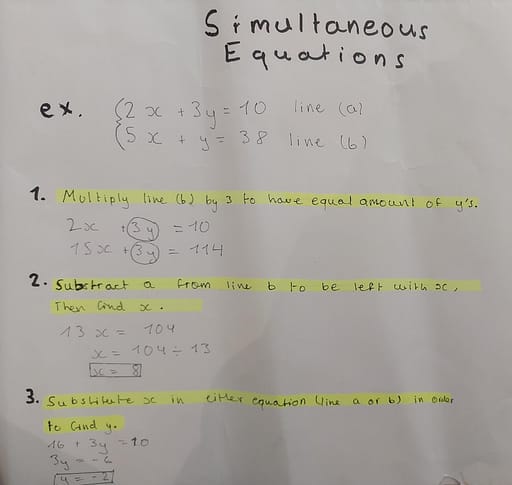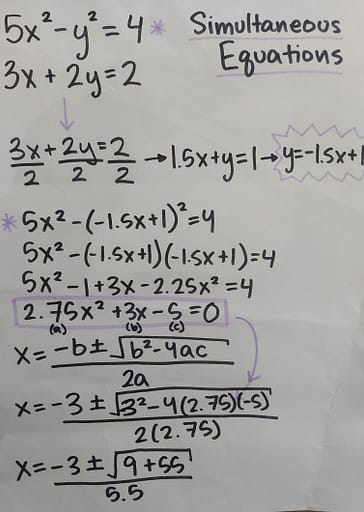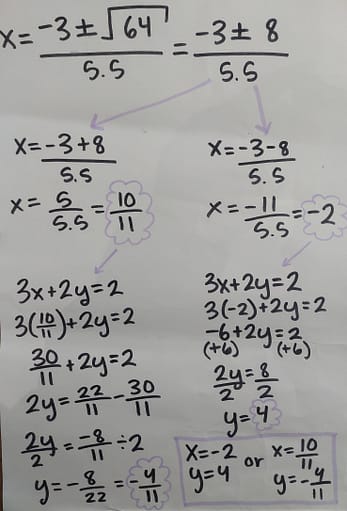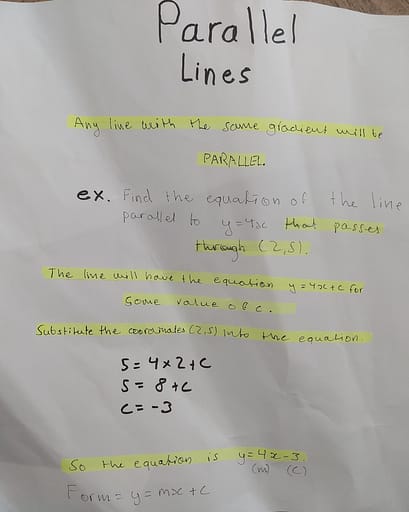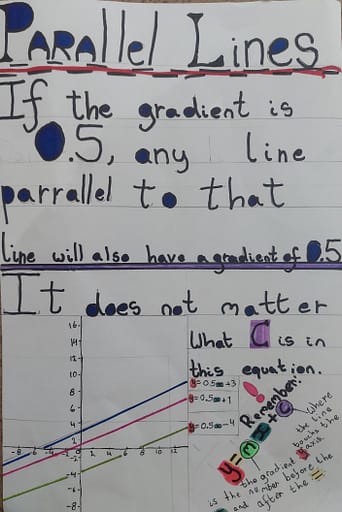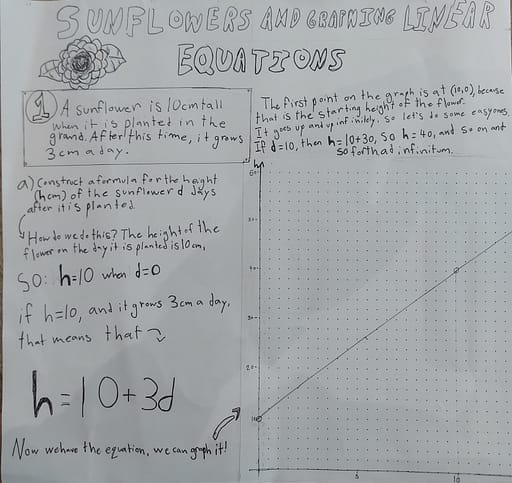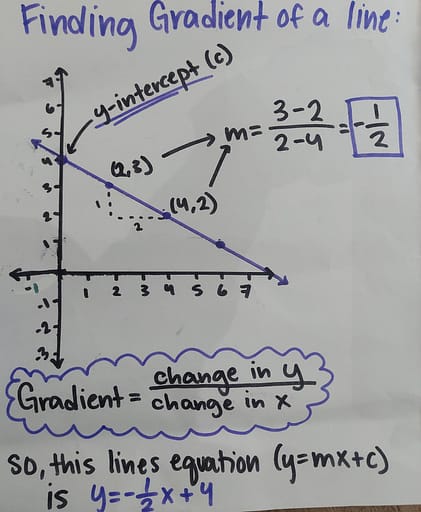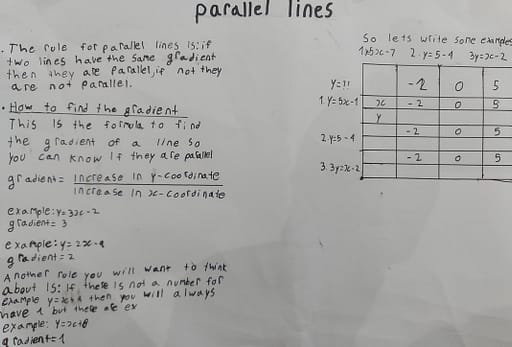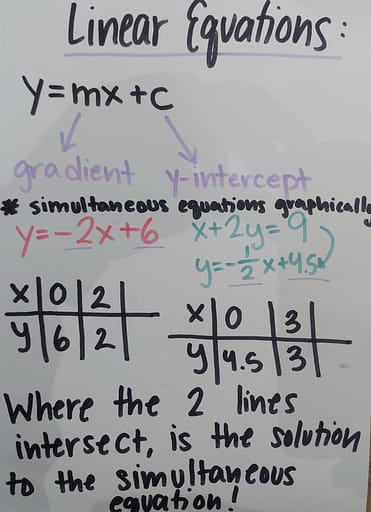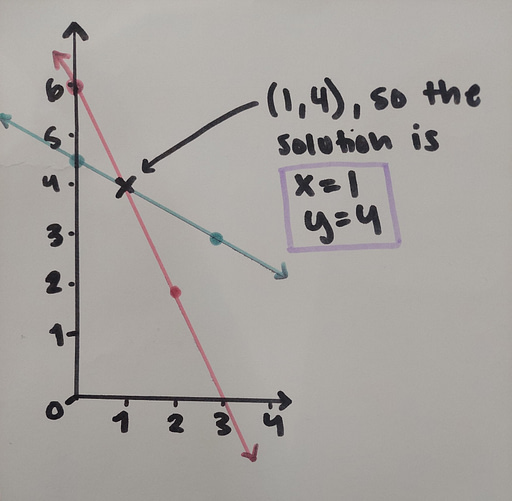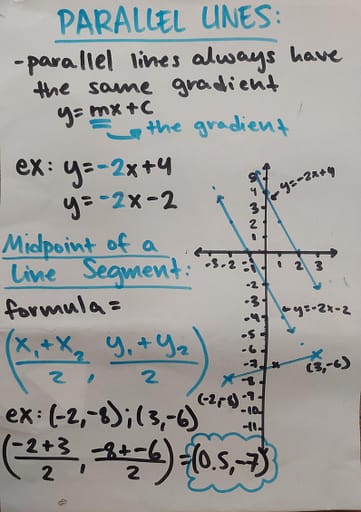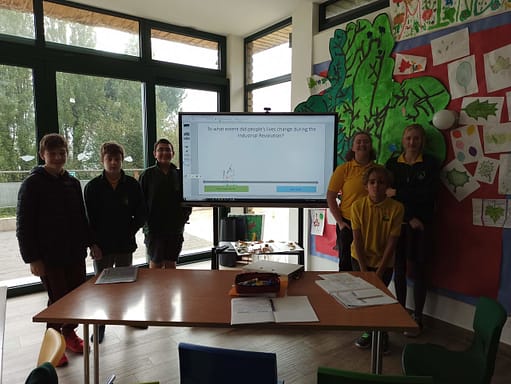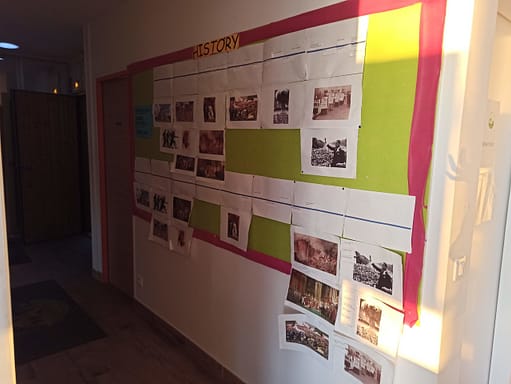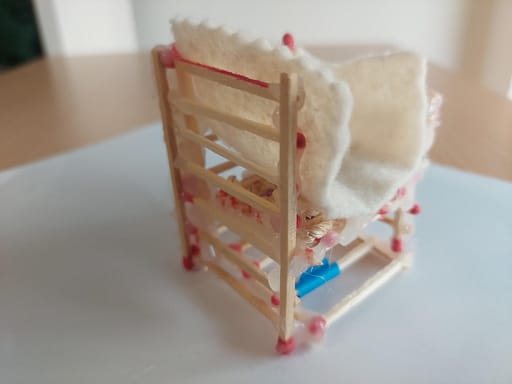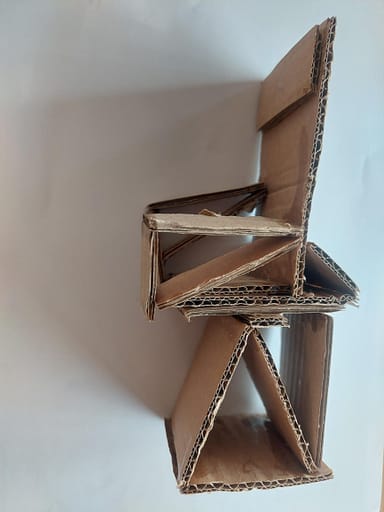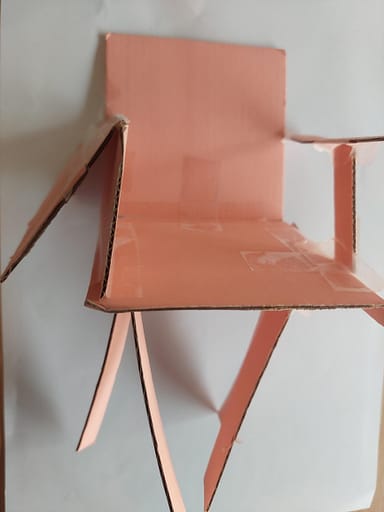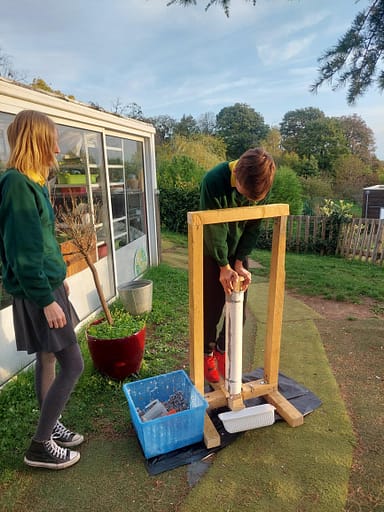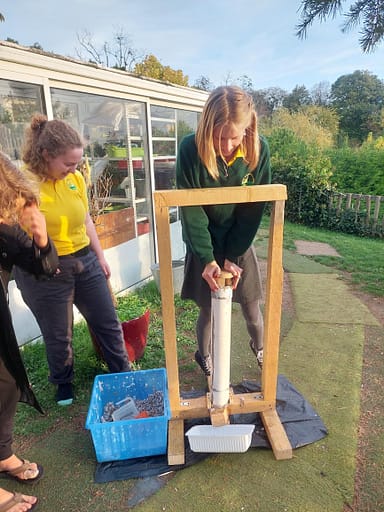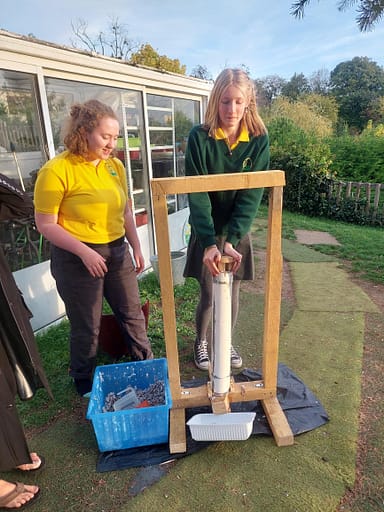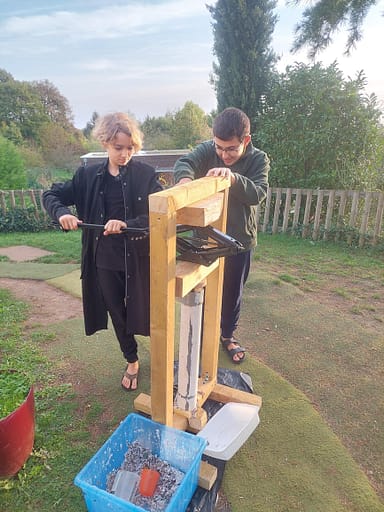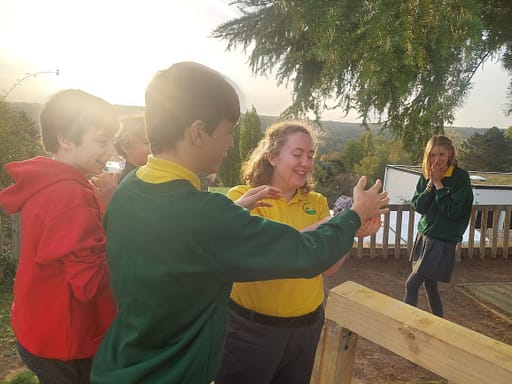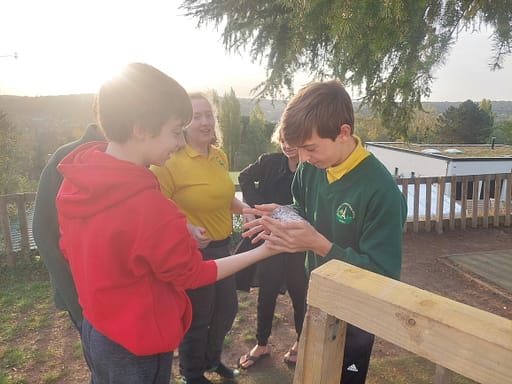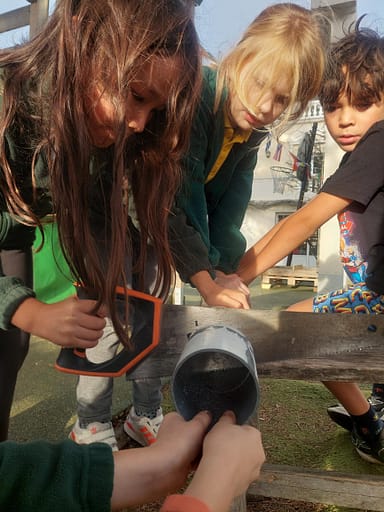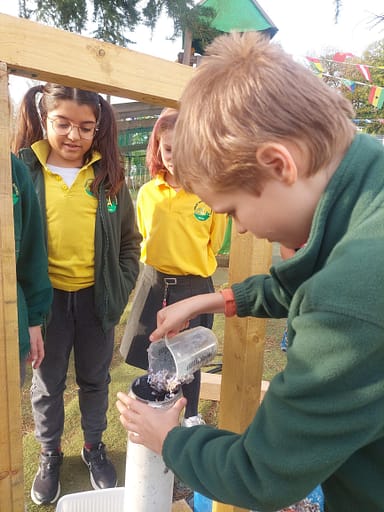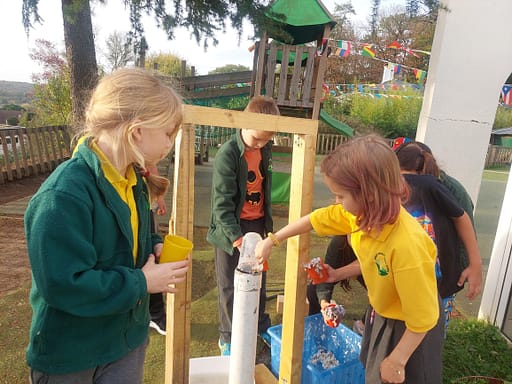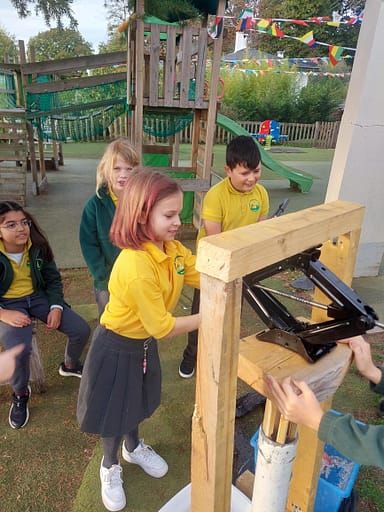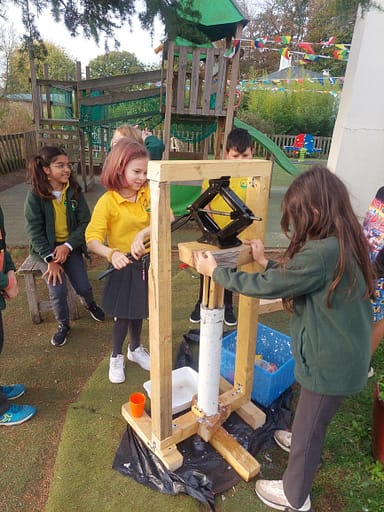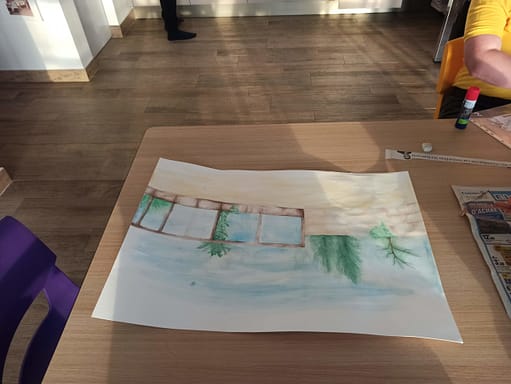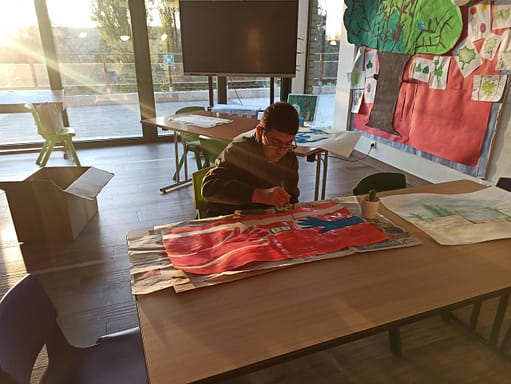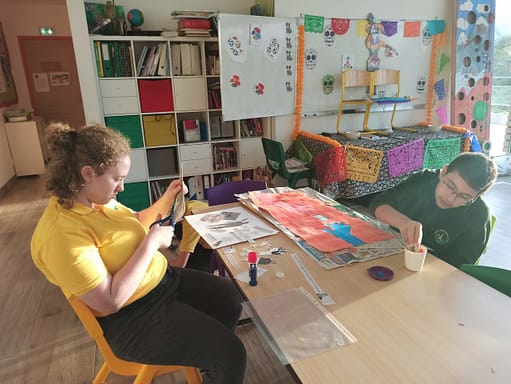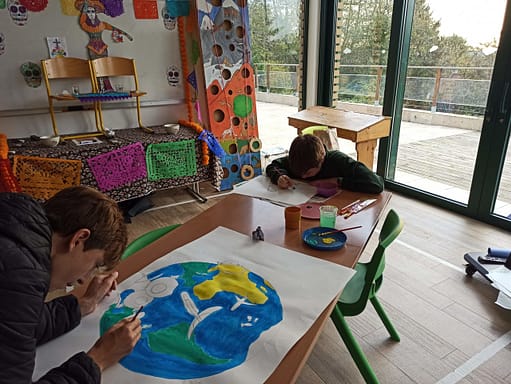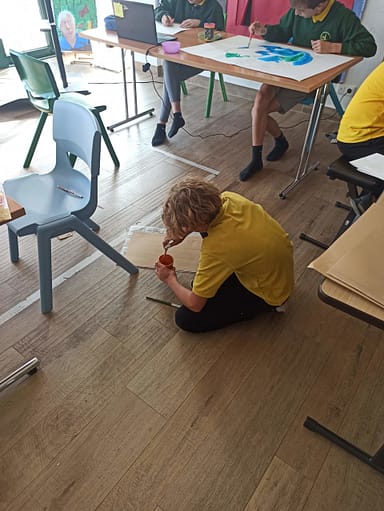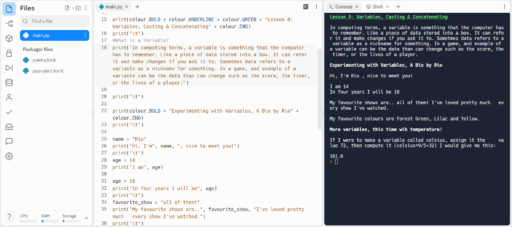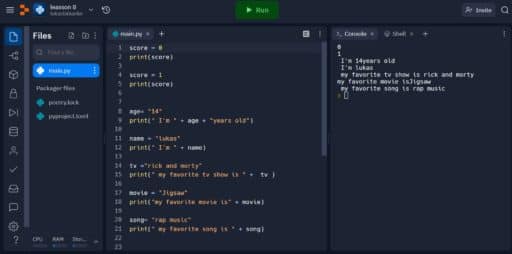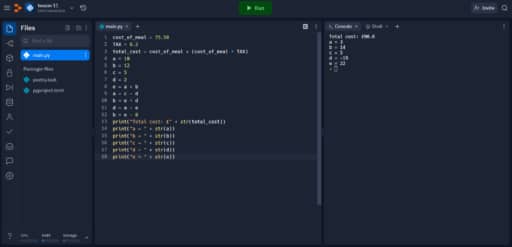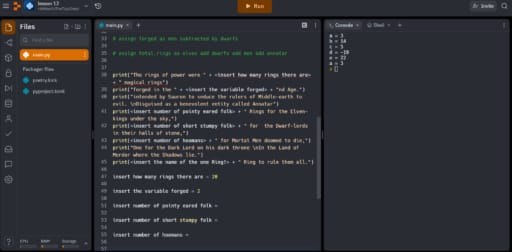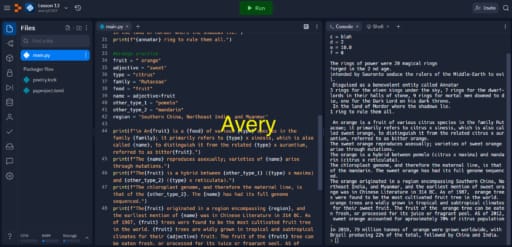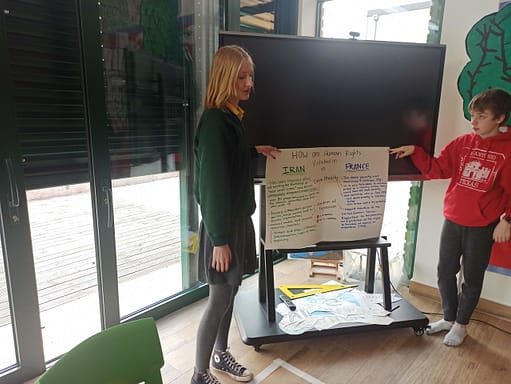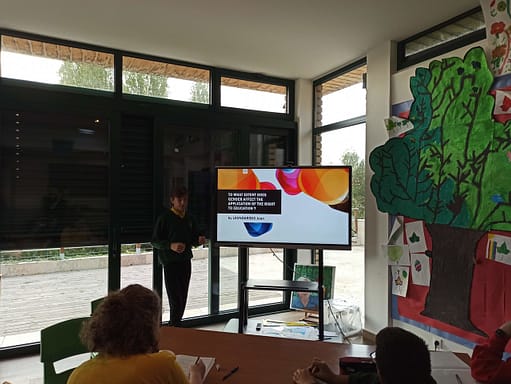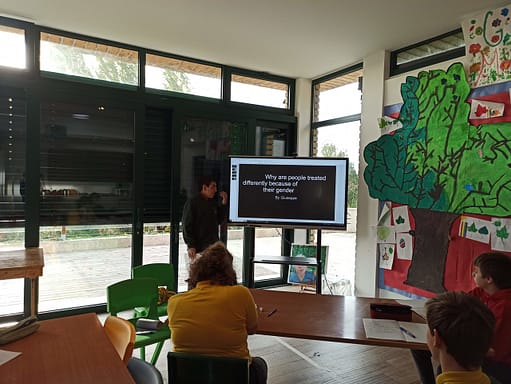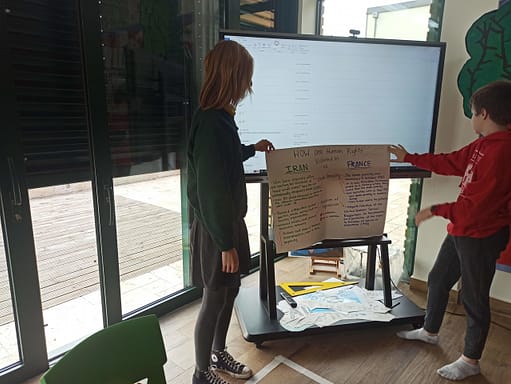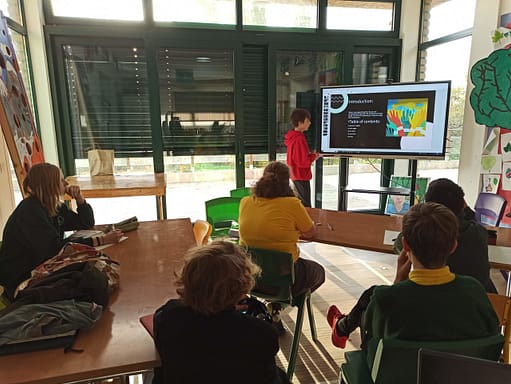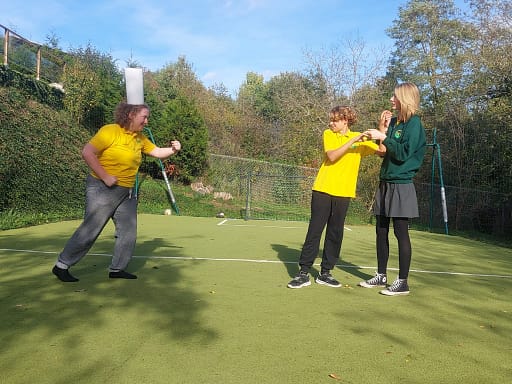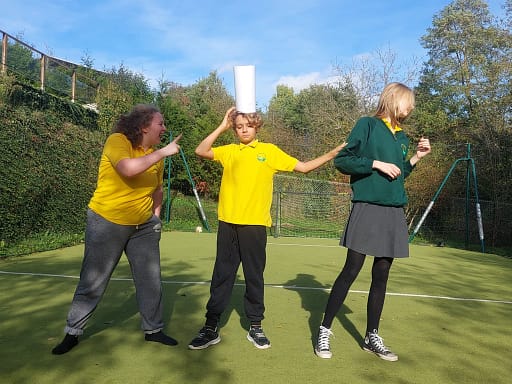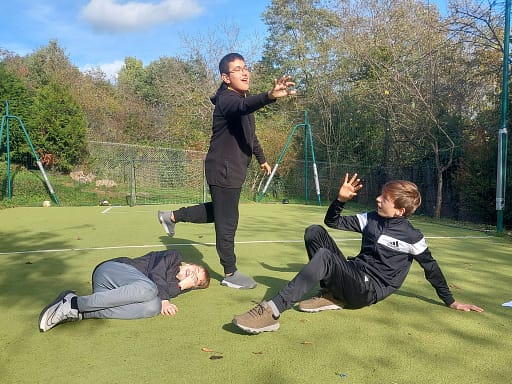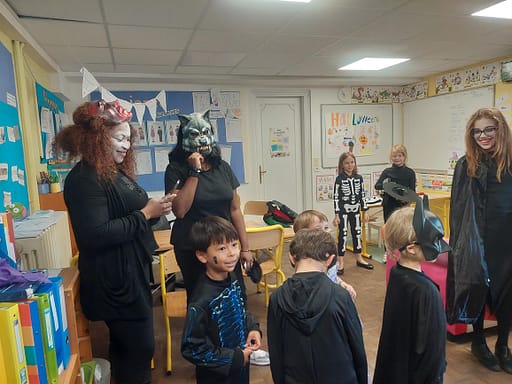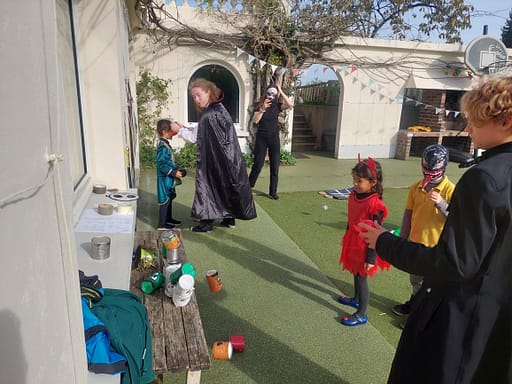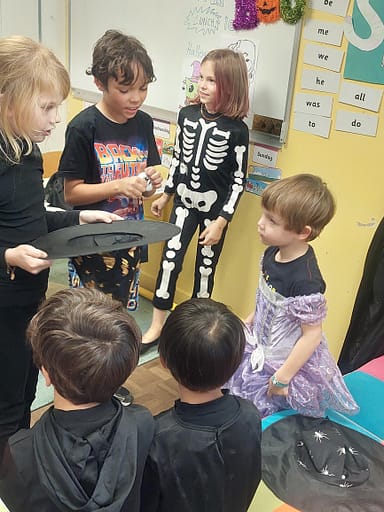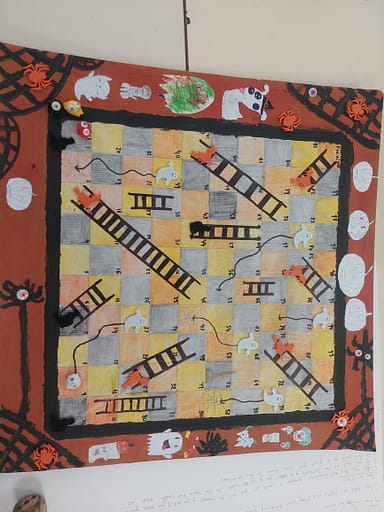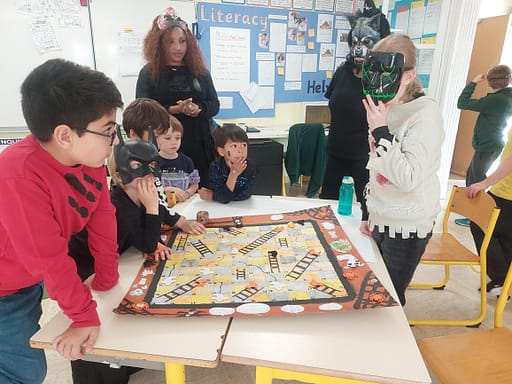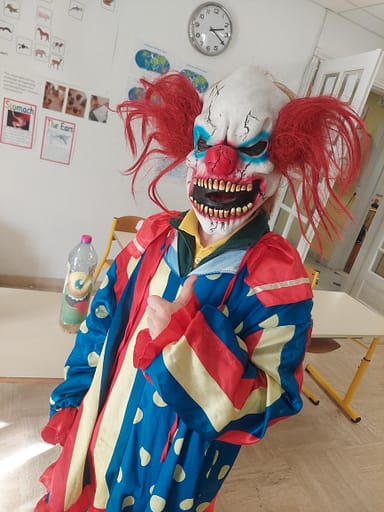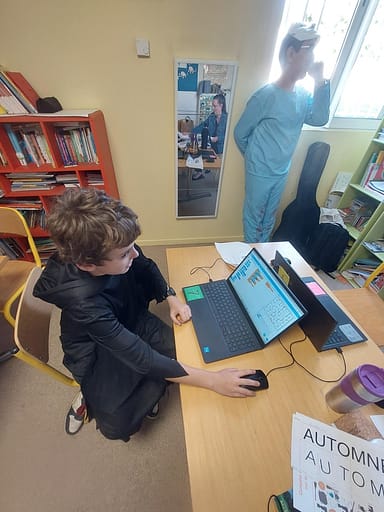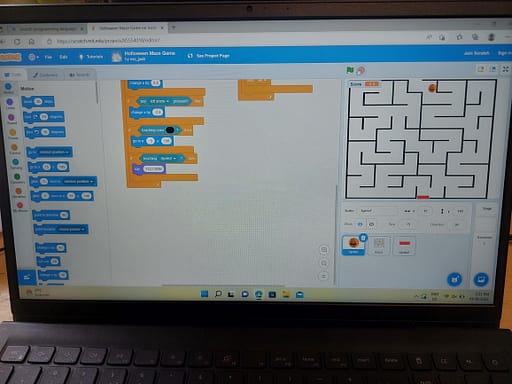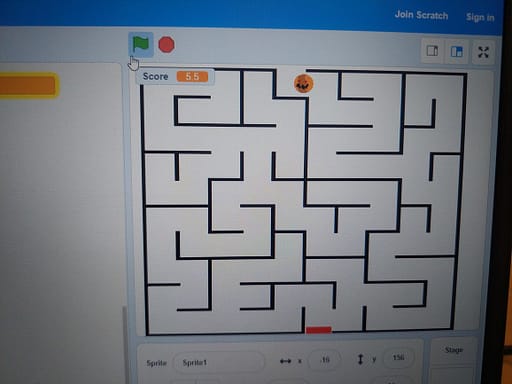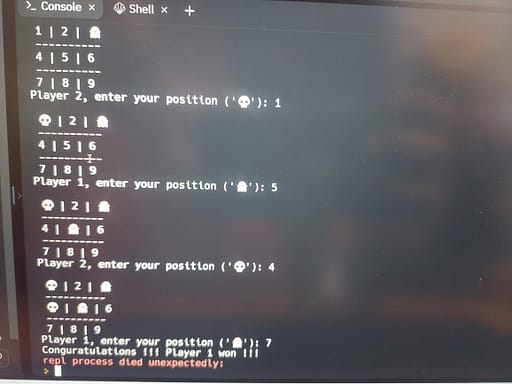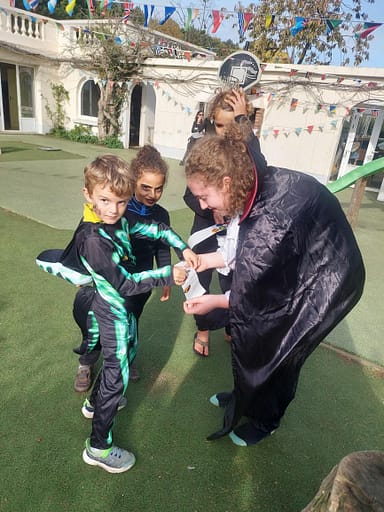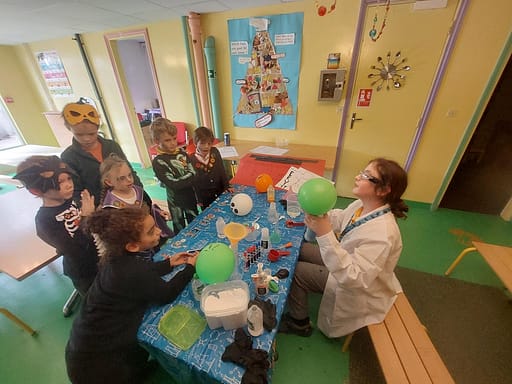English
This term Cedar focused on Narrative, examining closely the elements that make it effective through close reading and annotating of short stories and excerpts from writers including Langston Hughes, Gwendolyn Brooks and Bram Stoker. While studying details of characterisation and setting the class observed not only the power of vocabulary and figurative language but also the impact of punctuation. With these model texts in mind, the class wrote their own narratives in which the emphasis was variously on a particular incident or a location or setting.
The class also read The Alchemist by Paul Coelho, the story of an Andalusian shepherd who leaves his homeland and crosses into Africa and across the desert into Egypt, prompted by a recurring dream of the Pyramids and treasure. This deeply spiritual book calls the reader to follow their heart’s desire and so fulfil their destiny, while demonstrating through Santiago’s travails that the journey may not be a direct or easy one. Steeped in allusions to the Bible and the Koran the class learnt about some of the key teachings of Christianity and Islam and broadened their general knowledge, learning about omens, the history of Alchemy and the life of Bedouins in the desert.
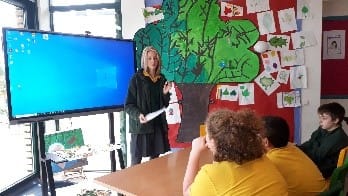
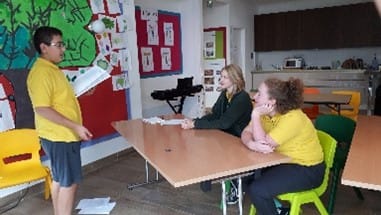
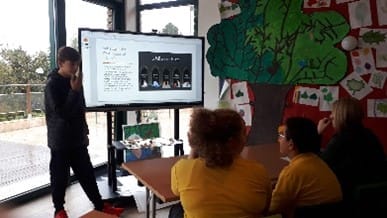
French
Intermediate Group with Christine
This year students will strengthen their knowledge of French and improve it with the help of « Adosphere »,their new learning book. We will follow the lives of 8 teenage characters (4 girls and 4 boys) who present their daily life (tastes, emotions, worries) in relation to others and to the surrounding world. In each module there is a specific dialogue with one of the characters with topic-related vocabulary, grammar and conjugation. Some additional exercises are given out to consolidate learning. At the end of each module students will create their own questions (based on what was learned) & add questions to the ZigZag game. The students learned two poems this term ( about school and autumn) enabling them to develop oral skills and vocabulary.
Just like last year, we do the daily Calendar exercise. This daily routine helps students to cover a large scope of topics like the date, the weather, the seasons, moods and activities. Each student should be able to ask questions to the others and receive answers. This is an interactive exercise in which all students of all levels partake.
After the holidays, the next module (with the character Manon) will cover the topic of the Home and we will also discover Castles in France. We will also talk about Christmas to close this time period.
Advanced Group with Marie
Durant cette période, les élèves ont étudié plusieurs notions:
en grammaire: la phrase et ses caractéristiques (formes et types), la phrase simple et complexe (1 seul ou plusieurs verbes), la phrase verbale et a-verbale, le nom et le groupe nominal, les déterminants, les pronoms, l’adjectif, les mots invariables ainsi que la nature/classe grammaticale des mots.
en conjugaison: les temps du passé, présent et futur, le verbe et son infinitif, les verbes d’action et les verbes d’état, le présent de l’indicatif de tous les verbes, l’imparfait des auxiliaires être et avoir ainsi que des verbes du 1er groupe.
en vocabulaire: le champ lexical du mythe et du conte autour du monstre, utilisation du dictionnaire.
en orthographe: 3 dictées ont été effectuées.
en mémorisation: apprentissage de 2 poésies “Ponctuation” et “Automne”
en littérature: 2 romans ont été lus et étudiés (selon le niveau de difficultés):
- Le roman de Renart de Laurence Mokrani
- Rémi et le mystère de Saint- Péray de Annie Coutelle
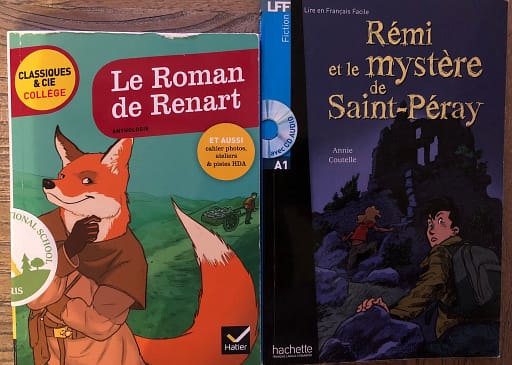
5 évaluations ont eu lieu depuis le début de la rentrée:
- 1 évaluation diagnostique qui permet d’établir le niveau de l’élève et de voir ainsi quelles compétences il a acquises, et celles qui sont à consolider.
- 4 évaluations portant sur la phrase, le présent de tous les verbes, la nature/classe grammaticale des mots, l’adjectif épithète ou attribut et l’imparfait.
French/English IMYC with Joanna
The Cedar students have two classes a week with me divided into 2 distinct subjects. Every Tuesday afternoon we study various aspects of the unique political and economic alliance of the European Union and every Friday we have global discussions/debates around the subject ‘enseignement moral et civique’ (EMC) – moral & civic teaching (MCT). We began our first term with an Introduction to the EU: capitals/countries of the 27 member states, the common EU values, the symbols of the EU and the goals of the EU. In MCT the students learned what the role of a Student Representative is and the importance of this role in a school setting. The 6 Cedar students will take turns being Student Rep this school year and next term they will present this role to Oak & Elm students and they will organize the vote of a class rep for these two classes.
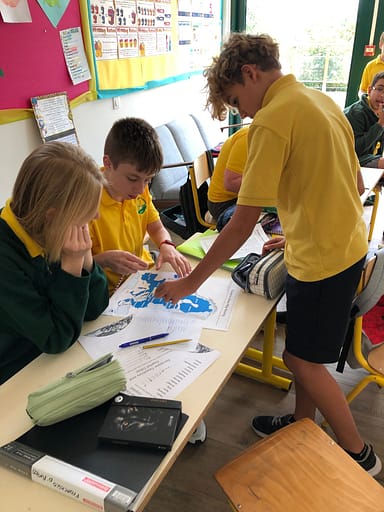
EU Capital/Country quiz 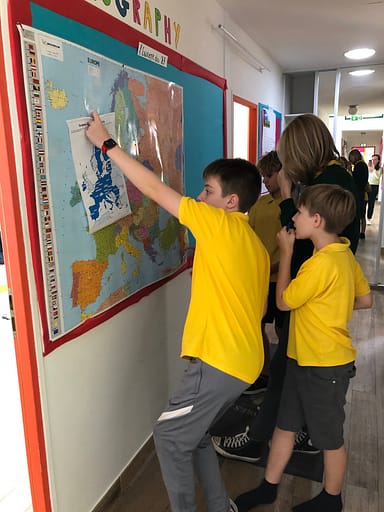

Preparing posters 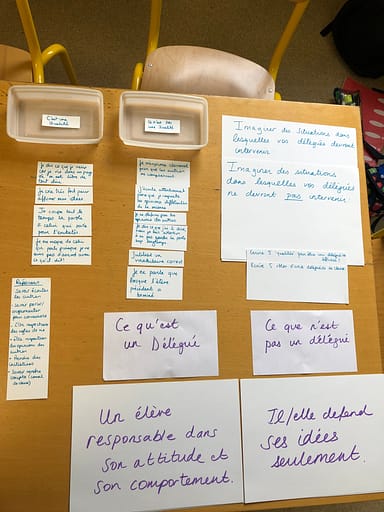
Definitions of role of a student representative to be sorted. 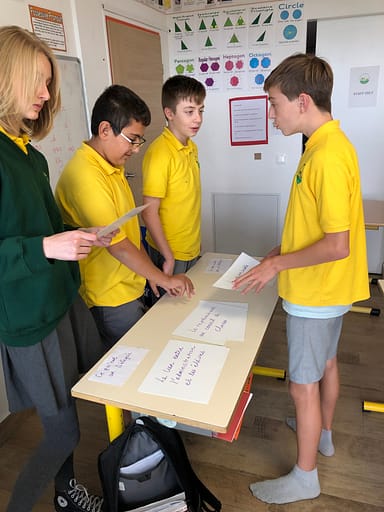
The students need to put cards in right category and explain their choices. 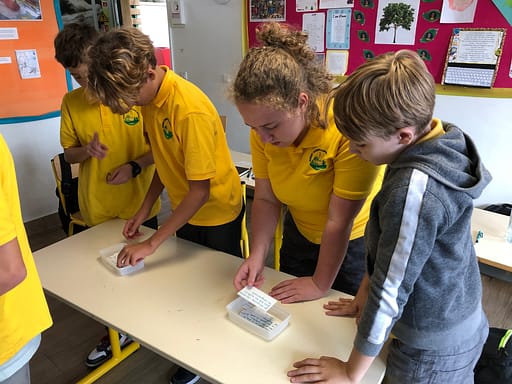
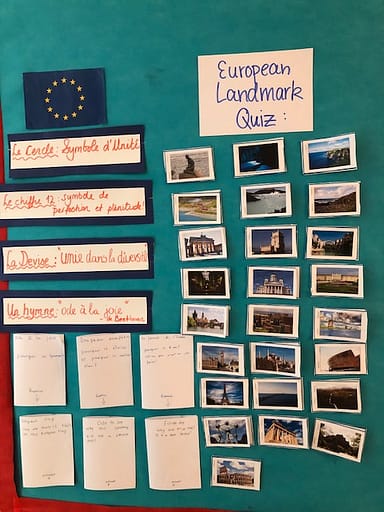
Symbols of EU on display and Quiz for students and adults to take on EU landmarks 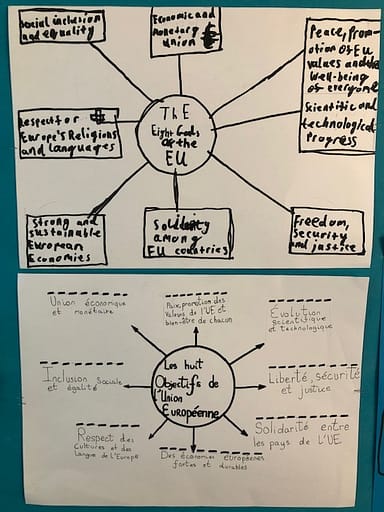
Poster of the 8 objectives of the EU 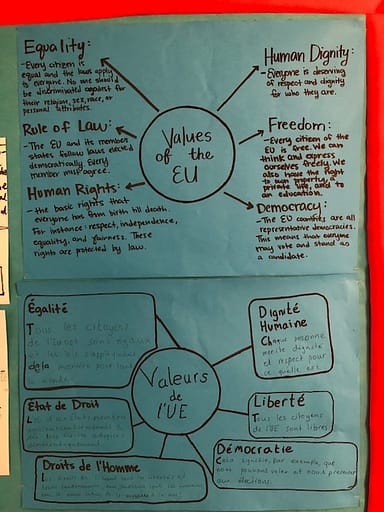
Poster of the Values of the EU
Spanish
SEPTEMBER-OCTOBER
Linguistic objectives worked on:
– To introduce oneself and one’s surroundings
– Talking about a person’s routine
– Talking about their tastes and school.
– Present tense, basic prepositions, linking words, affective verbs (GUSTAR type)
– Numbers and their daily use: statistics, date, time, age…
Cultural objectives worked on :
– Computer graphics of the social world
– Geography of Latin America
– Mexico and “Día de Muertos
PROJECT: ALTAR DE DIA DE MUERTOS
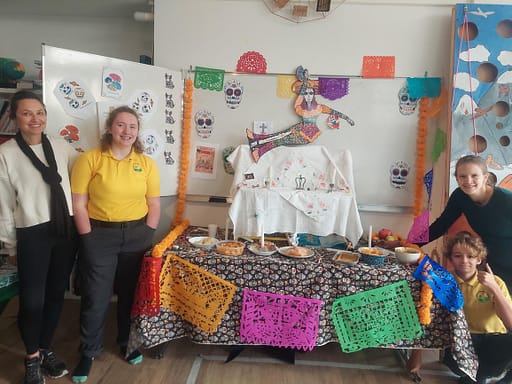
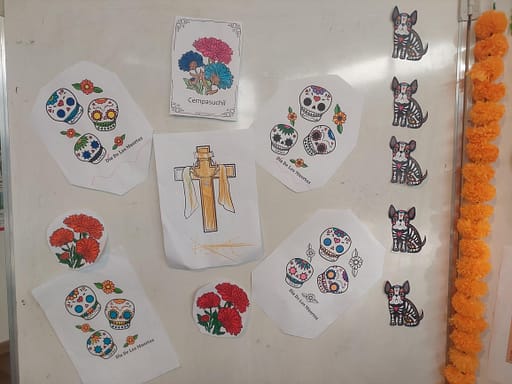
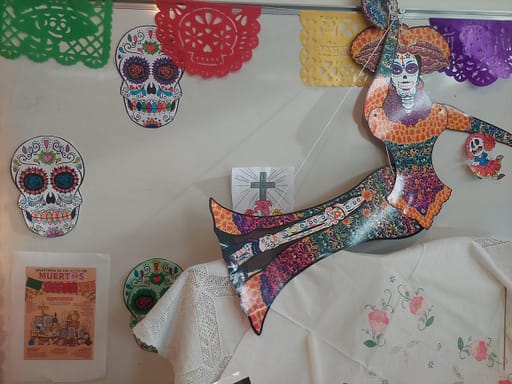
NOVEMBER-DECEMBER
Once the contact has been established this term we will work in a flipped classroom. This is based on prior work done by the child at home on the given topic with written, audio or visual material.
Language objectives:
– Talking about projects, giving and asking for personal information.
– Expressing gradation
– Talking about knowledge and skills
– Lexicon: countries, inhabitants and languages. Jobs and studies. Leisure activities. Family
Cultural objectives:
– Spanish as an international language
– The family in the Hispanic world
– Intercultural families.
– Christmas and Nativity celebrations.
Mathematics
In Algebra: Expressions /Formulae/Algebraic Fractions/ System of equations/Straight-line graphs
Cedar worked on simplifying algebraic expressions, used simple formulae and wrote formulae from the problem to identify how they could be applied in real life. We worked on solving problems while substituting specific values into expressions and formulae and then probed further into algebra while finding solutions for the systems of equations. Students also investigated how to find the solutions to the system of equations when they are represented graphically.
Cedar studied graphs that are expressed in the form y=mx+c and calculated their gradients and intercepts with the y-axis. We then worked on drawing parallel and perpendicular lines and found midpoints of a line segment. Cedar students prepared posters on these topics and practiced teaching/presenting them to their peers.
Science
Cedar class initiate this term with deep biological concepts by studying deeply the cellular leaf structure. Furthermore, they identified the plant cell structure responsible for photosynthesis.
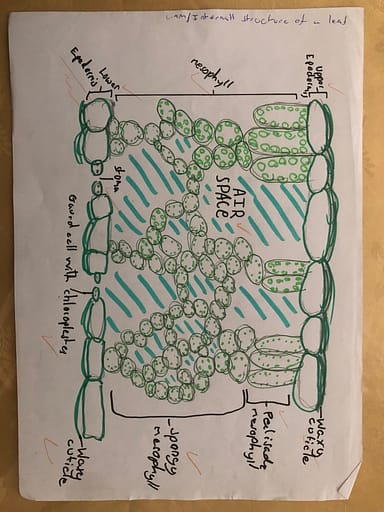
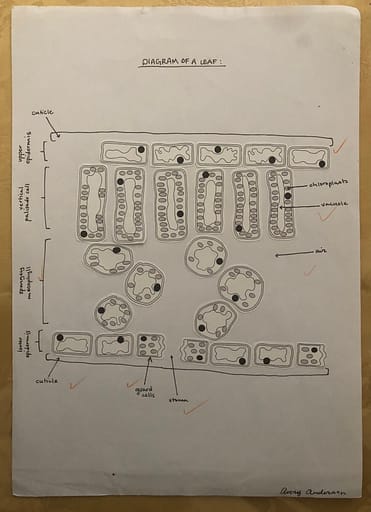
Cedar class had also the chance to make an organized study about Mitosis. They were able to identify the different stages of cell division, naming the stage of the cell cycle as well as reproducing Mitosis stages on a card board project.
Students have been introduced to genetic concepts and started by buit up a vocabulary Map to identify genes, genomes, phenotypes, genotypes, and Alleles.
Cedar class then could successfully finalize a Meiosis division to find out why kids don’t look like their parents and what can increase genetic variation like the random chromosomes recombination and Crossing over.
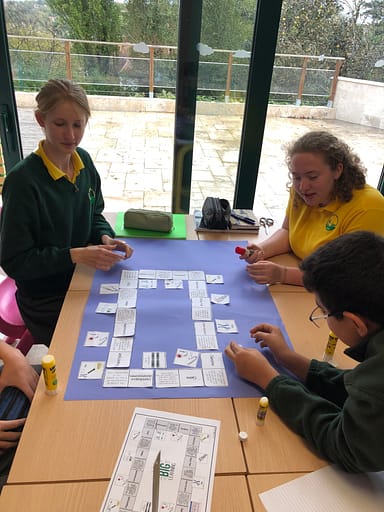
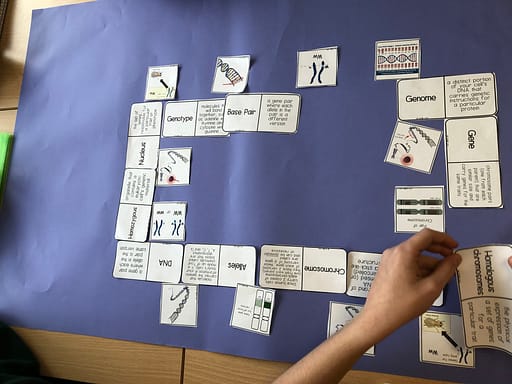

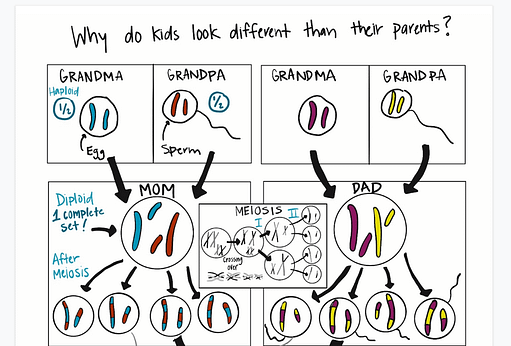
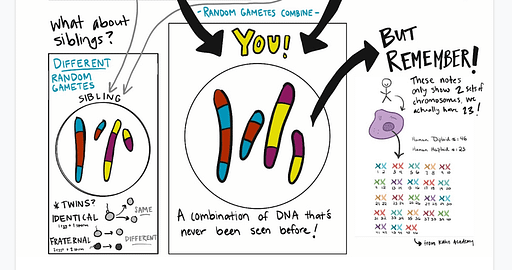
History
The Cedar class started the year by working on historians’ methodology. The students explored different kinds of primary sources used by historians and put together a presentation on an historian’s work they were interested in. The students also started to look at global history, creating a big timeline that includes historical events from different areas of the world. They have ended the term by looking at the Industrial Revolution, analysing the impact that it had on European society.
Geography
Cedar learnt about Geographic Information Systems (GIS) this term, its manifold applications and how it has revolutionised data gathering and analysis.
The class began the term using multiple paper maps to bring together information for choosing the location of a cinema. They then looked at the same project using the layering of information via a GIS mapping application and saw the speed and efficiency of GIS as it brought together statistical analysis with the visualisation and geographic benefits offered by maps.
The class looked at GIS uses in crime mapping, urban and transportation planning, accident and hotspot analyses, to name but a few of its applications.
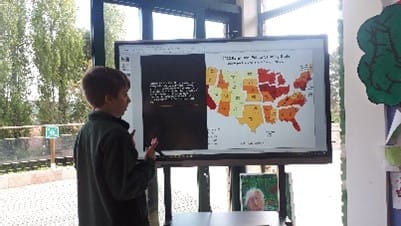
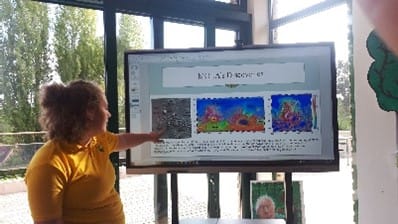
Design and Technology
‘My chair is not very comfortable. Can I design and make my own?’
‘I spend a considerable amount of time sitting on my chair, I really think it should be VERY comfortable and VERY chic.’ And that is how it all started… Cedar students then researched and discovered different artistic, comfortable and not so comfortable but very stylish chair designs and embarked on the journey to create their very own. The children sketched their designs, created 3D models and presented their blueprints to their peers.
Cedar students have sought their materials and will start building their creative constructions during the next term.
The children continued to develop their carpentry skills by applying them to creating and building ‘Eco Logs Press’ while helping out Elm Class and enjoyed playing the ‘Sling hockey’ game made by Birch and Walnuts and came up with some design suggestion on how their game could be improved.
Woodworking projects are extremely important for developing children’s creative and critical thinking skills. Through these projects, not only do children get to handle and smell the wood but also learn how to use the different carpentry tools. They develop their mathematical thinking, broaden their scientific knowledge and, most importantly, acquire a ‘can do’ mindset.
ART
The Cedar class worked on the representation of global issues through art. They have looked at various example in art history, from Van Gogh to Picasso and Keith Haring. They have realised posters using different types of colours and techniques and have chosen a specific global issue to represent.
ICT
Cedar students learnt about the basic syntax and concepts of Python programming such as printing basics, comments, math, variables and re-assigning variables. They integrated these concepts and applied them into different projects and lessons. These ideas have helped them to think outside the box and practice their problem-solving skills. They’re becoming experts and we are very proud of them. They will continue to discover Python next term.
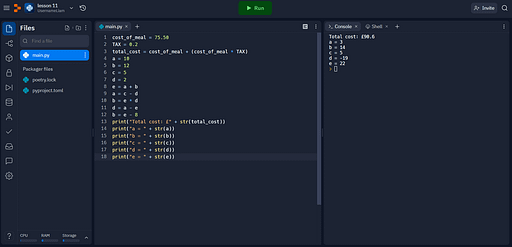
Global Perspectives
Cedar students looked at human rights, learning how to develop and investigate a specific research question based on their own interests. They have chosen different topics, analysing them from national and global perspectives. Students’ work focused on right of speech, the rights of minorities, gender and the right to education and the acquisition of civil rights. They have presented their research, by producing either a poster or a digital presentation.
Drama Workshop
The Cedar class worked on the design of crowded tableaux, representing complex scenes. They spent the last few weeks of the term developing tableaux including ten freeze frame and representing stories drawn on Greek mythology.
Creative Writing Workshops
The Cedar class created their own writer’s notebooks, setting up individual goals for the creative writing sessions. They have also worked on fictional stories and journals, writing a fiction or a non-fiction text inspired by the school canoeing trip in September. Students also worked on individualised writing goals, reflecting on what they want to focus on when writing. They ended the term by looking at the features of dystopia, on which they will continue to work in the next term.
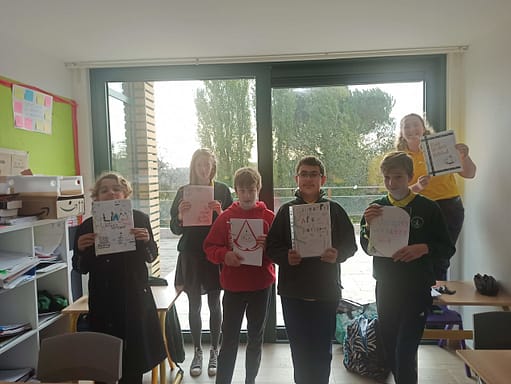
Forest Exploration and Mushroom hunting
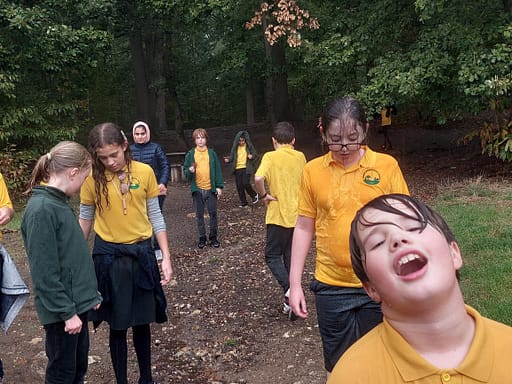
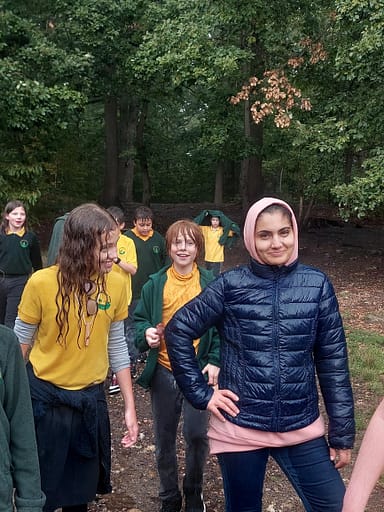
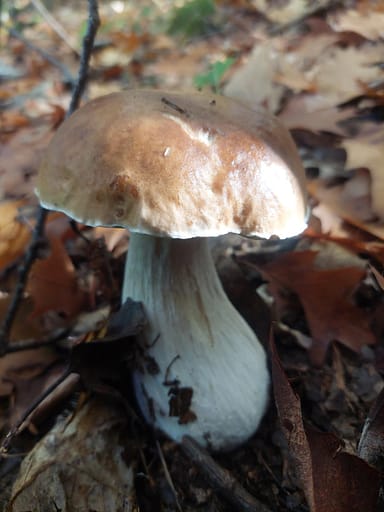
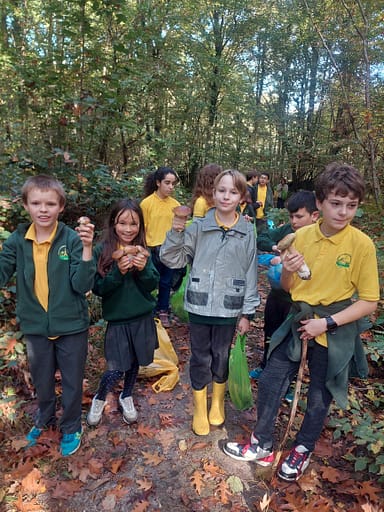
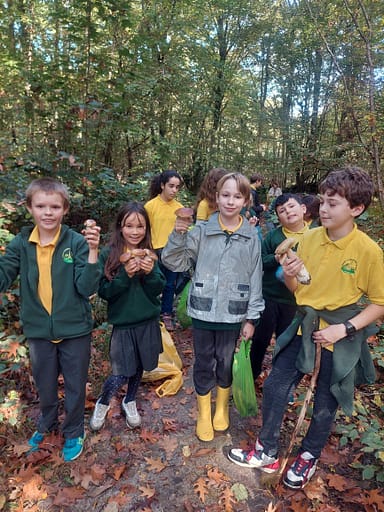
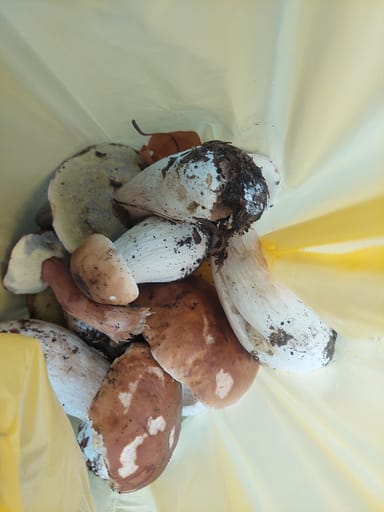


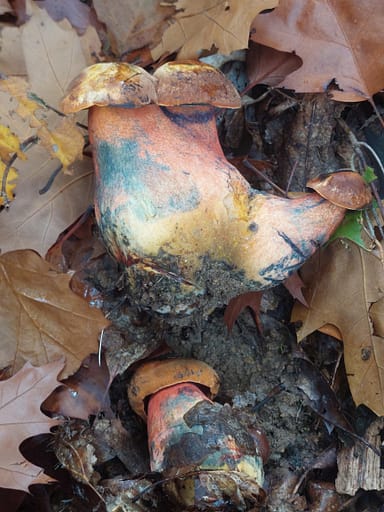
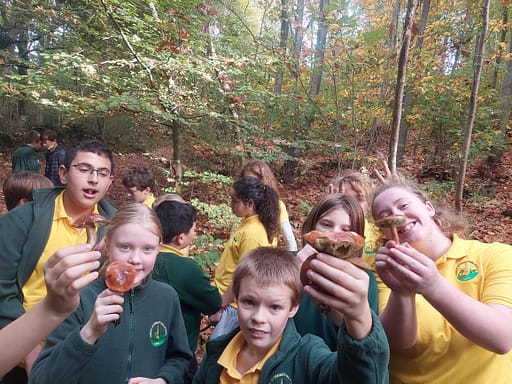
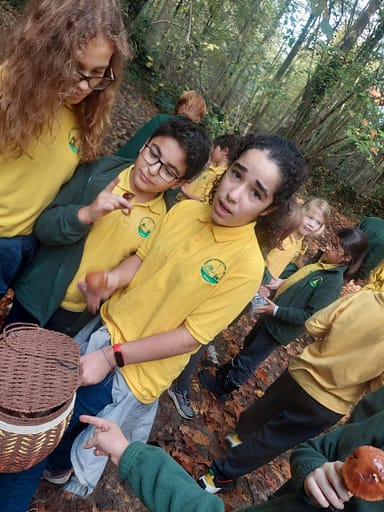
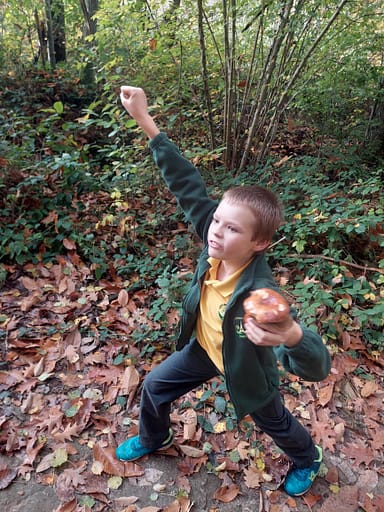
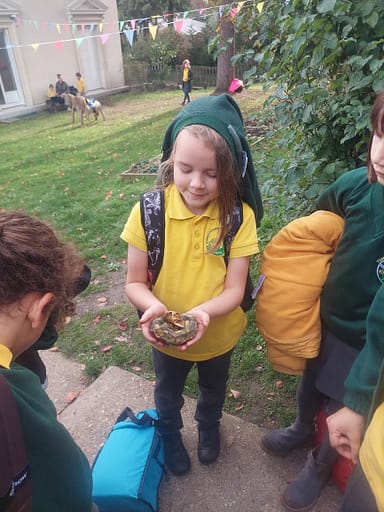
Canoeing Trip
Oak, Elm and Cedar classes canoeing on the tranquil waters of “the little arm of the Seine”.
Located between Vétheuil and Haute-Isle in the Vexin Regional Nature Park, this spectacular and secluded section of the Seine was a source of inspiration for many impressionist painters.
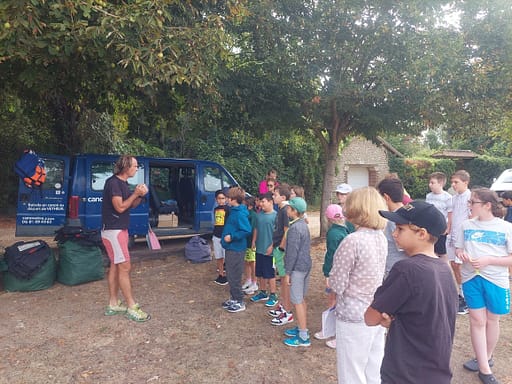
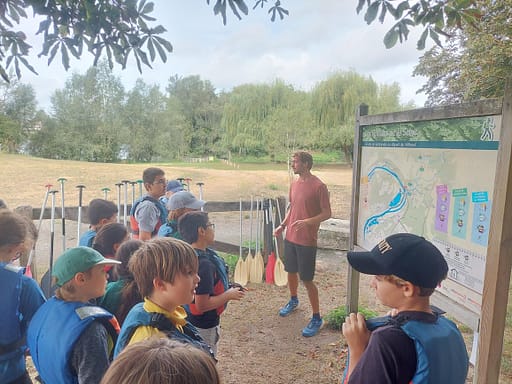
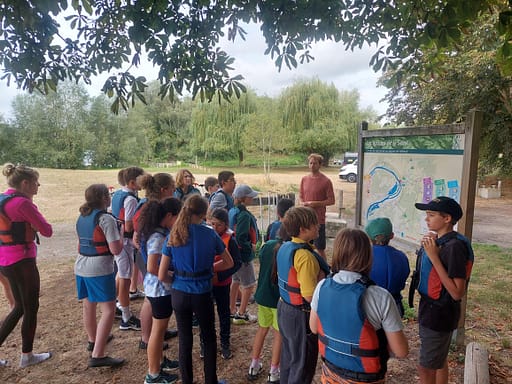
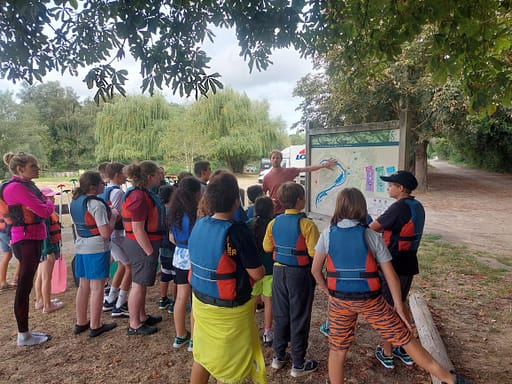
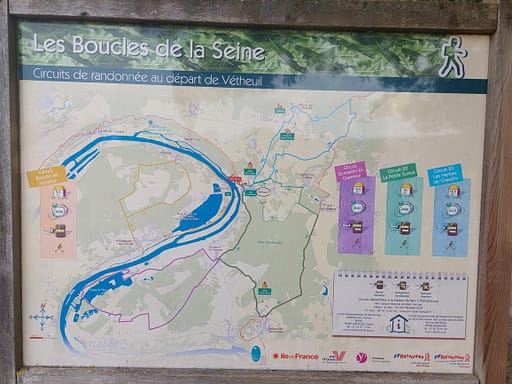
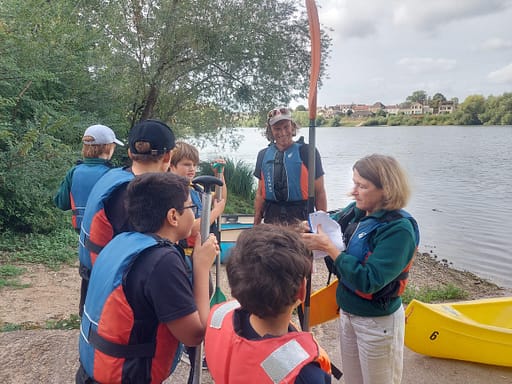
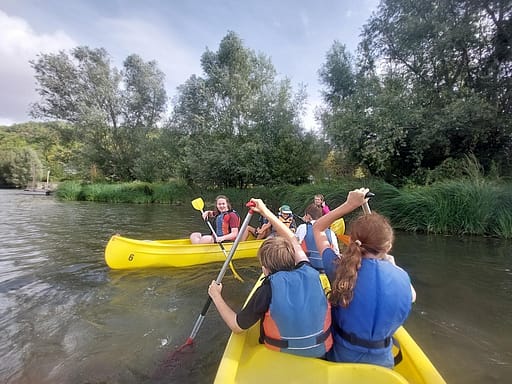
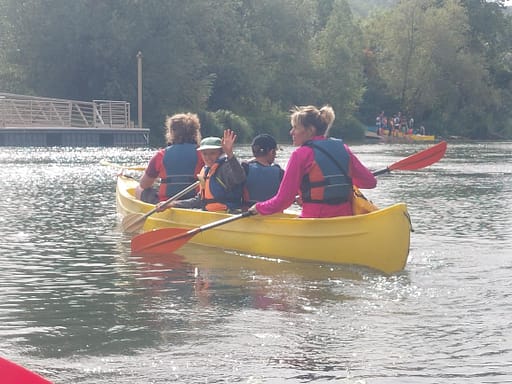
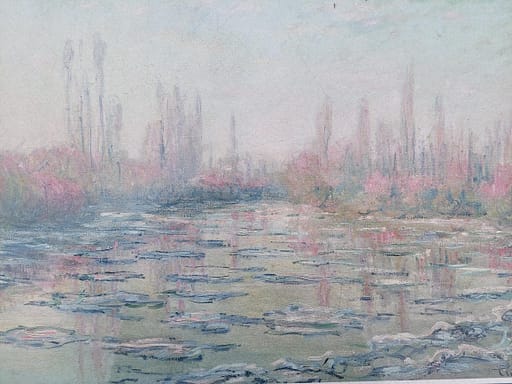
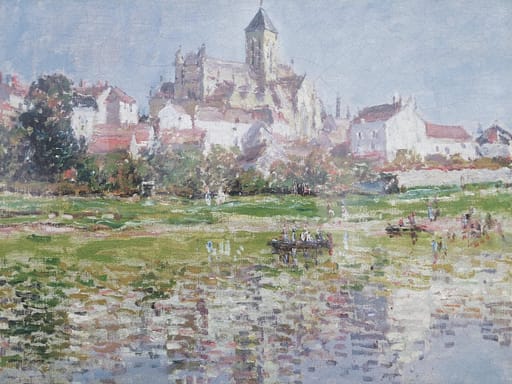
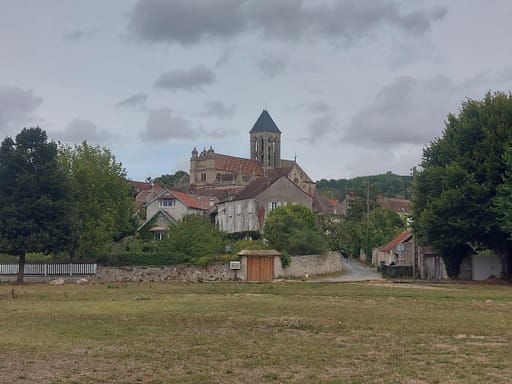
Halloween Celebration
Oak, Elm and Cedar students creatively collaborated together while designing their exciting Halloween activities for the rest of the school.
Enjoy your holiday, Cedar!
FISP Team

